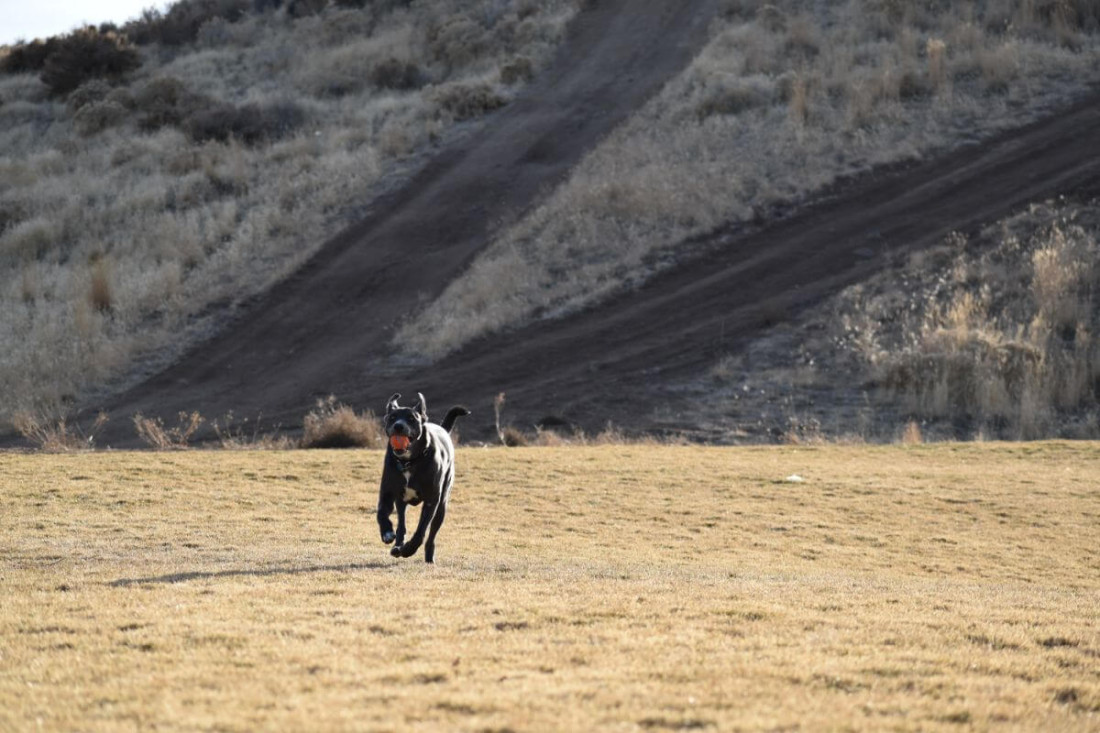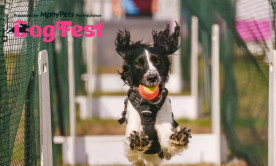Letting your dog off leash is a great way for them to expel excess energy, give them a sense of freedom, and allow them to explore their surroundings. However, even in quiet and seemingly safe environments, it’s not always a good idea to do so.
In this guide we go over the basics of when it’s safe and legal to let your dog off their lead in the UK.
The UK Law
In the UK there is no law which requires owners to keep their dog on a lead in public.
Certain public and private areas may have signage outlining restrictions for dogs, which can include them being on a lead. This means owners need to be aware of these individual requirements whenever they want to take their dog off leash.
Although there is no defined law on dog leads, it is against the law for a dog to be “dangerously out of control anywhere”. According to the gov.uk website a dog is considered dangerously out of control if:
- it injures someone
- it makes someone worried that it might injure them
- it attacks someone’s animal
- the owner of an animal thinks they could be injured if they tried to stop your dog attacking their animal
Farmland & Livestock
Dog owners should never take their dog off lead on farmland or around livestock. A farmer has the legal right to kill a dog if it’s worrying their livestock.
Sentences & Fines
If your dog is considered “dangerously out of control” you can get an unlimited fine and be sent to prison for a maximum of 6 months. Your dog can be put down and you can also be banned from owning a dog in the future.
If your dog injures or kills someone you can face up to 14 years in prison. If your dog injures a guide dog or service canine you may face a prison sentence of up to 3 years.
Safe Environments
You should only ever let your dog off leash in open areas away from roads and busy public places. It’s good etiquette to remain respectful of other people and letting your dog off lead shouldn’t concern or bother others.
There is no blanket rule on where you can let your dog off lead but some areas have a series of orders which you must follow. These are usually signed telling owners that dogs must be kept on lead at all times, or no dogs are allowed in a specific area at all (like fenced children’s play areas).
The Public Spaces Protection Order (PSPO) governs dog control in many council areas and if you fail to comply with the order you can be fined and prosecuted.
Local council websites often list their PSPO dog control guidelines and can even provide a list of places where dogs are excluded. You can find your local council website here.
Unsafe spaces
Even areas where you can’t see specific signage requesting dog’s stay on leads, it’s not recommended that you let your dog off leash in certain public areas, including:
- Ponds where there are ducks and swans present
- Around wildlife (including squirrels, pheasants, and pigeons)
- Children’s play areas
- Cemeteries
- Allotments
- Outdoor paddling pools
- Sports pitches, including cricket fields and bowling greens
- Populated beaches
- High streets
Basic Commands
Basic training is important in establishing a base of good behaviour with your dog. You should never let your dog off lead in public if it’s not well trained and you’re unable to bring it under control with commands.
Basic commands your dog should follow:
- “heel” – so your dog can return to your side when needed
- “sit” and “stop” – so you can halt your dog immediately
- “leave it” - so it pick up or chase anything it shouldn’t
- “drop it” - in case your dog picks up something that shouldn’t
- “look” – so you can get the attention of your whenever a distraction comes along
Pet charity The Blue Cross has a very helpful and free guidebook on basic dog training which you can download here.
Being mindful around others
It’s also good dog ownership to not let your pet off lead around other on lead dogs. Owners may have kept their dogs on a leash for a range of behaviour or training reasons, including:
- being highly reactive
- being scared or nervous around other dogs
- health reasons or being post-surgery
- the owner isn’t confident controlling their dog around others
Be aware of your surroundings
Just because there is no one around and in you’re in a quiet environment doesn’t mean you should let your dog run free unmonitored. You should keep an eye for your dog in case:
- They wander off into a new area and come across wildlife or other dog walkers.
- Not cleaning up after your dog can result in a fine and prosecution, not to mention its very poor dog owner etiquette.
- You should be mindful of seasonal hazards like conkers as these can cause serious health risks to dogs if eaten.
- Daffodils are also poisonous to dogs so you will need to actively keep them away from them in the Spring and Summer months.










